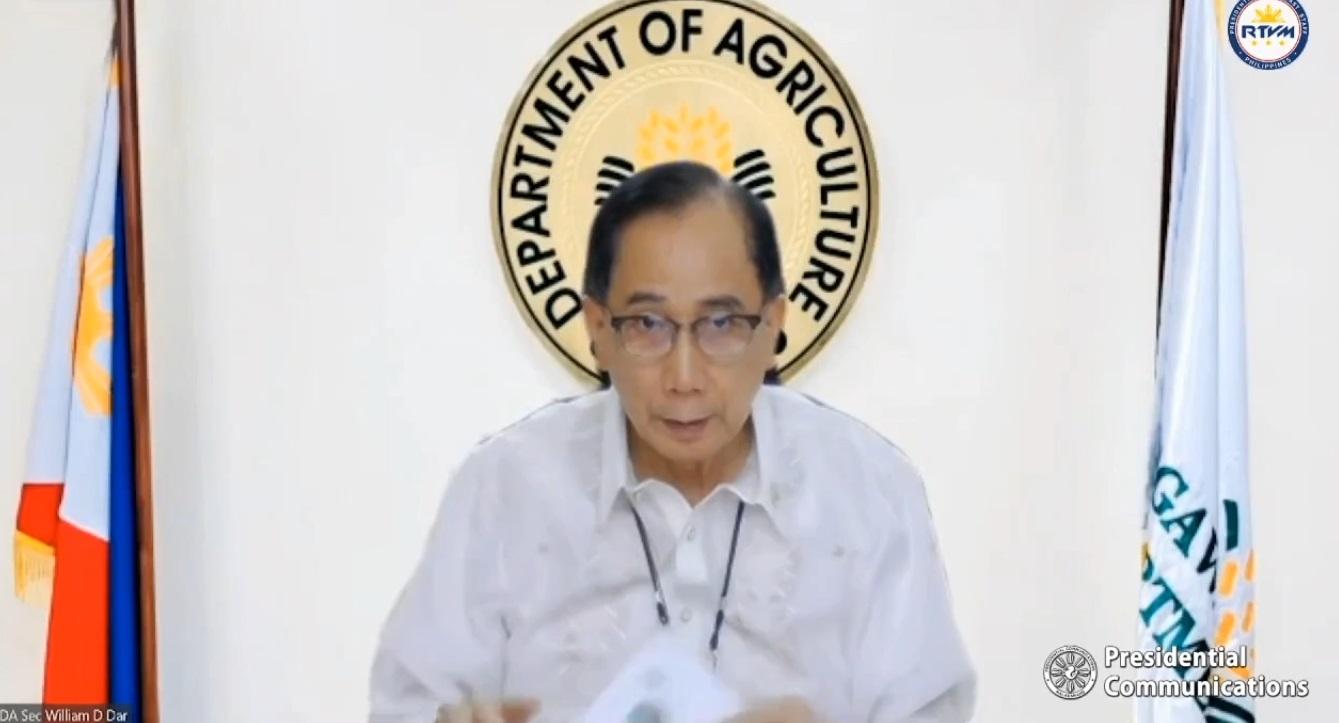Outgoing agri chief Dar addresses smuggling, says ‘golden era’ coming

Outgoing Agriculture Secretary William Dar on Wednesday said he believes the sector is about to enter its "golden era," even as the industry continues to face a number of issues including vegetable smuggling and rising prices.
In a briefing, Dar said he believes he will leave the Department of Agriculture (DA) with a “solid foundation” for the country’s agriculture sector in the coming decade.
“As I finish my term as Secretary of Agriculture… I keep a joyful heart and I have peace knowing that I did my very best to lead the sector safely and efficaciously with the farmers and the fisherfolk at the heart of it all, specially during these trying times,” he said.
Dar is set to vacate his post which he will turn over to President-elect Ferdinand “Bongbong” Marcos Jr., who will serve as both Agriculture Secretary and the country’s chief executive.
“With President Marcos Jr. at the helm of the Department of Agriculture, the sector will be in very, very good hands as I believe that the golden era of agriculture is about to begin, as it becomes a critical and fundamental part of the country’s economic transformation,” Dar said.
“I am sincerely genuinely happy to leave a solid foundation for Philippine agriculture in the next 10 years,” he continued.
Earlier this week a report of the Senate Committee of the Whole identified a number of officials of the DA and the Bureau of Customs suspected to be involved in the smuggling of agricultural products.
The committee report identified 22 individuals linked to alleged smuggling, based on an intelligence report received by Senate President Vicente “Tito” Sotto III in May containing a “validated list” of persons involved.
At Wednesday's briefing, Dar said his administration has continued to work with partner agencies to strengthen border protection efforts, as he called for the DA to be vigilant against such activities and to document and report any incidents.
“We remain steadfast in our drive against graft and corruption. As Secretary of Agriculture I condemn in the strongest terms smuggling and all other forms of illegal entry of all agricultural, fishery, and meat products in the country,” he said.
“These compete directly with the produce of our farmers, fishers, and food producers, depriving them much needed livelihood and incomes. Smuggling remains to be a systematic problem that sabotages the economy as a whole,” Dar added.
Moving forward, Dar cited a number of risks and pushed for digitization in a number of subsidies such as cash transfers and fertilizer subsidies, to avoid human intervention.
He also pushed for the increase in the funds for fertilizer subsidies, noting that lower fertilizer use would drag down rice production, and possibly drive prices higher.
Citing a study from the Philippine Rice Research Institute (PhilRice), Dar said the country could lose nearly 842,000 metric tons of rice which would then have to be filled up by imports.
To address this the government would have to spend an additional P4 billion this year and P20 billion in the next year, bringing the additional funding needed to up to P170 billion by the end of the incoming administration.
“I’d rather go that route because you are assuring these Filipino people that you have this buffer stock. I’d rather spend P170 billion in six years,” Dar explained.
The Department of Agriculture (DA) was earlier seeking to increase its budget by P8 billion to P10 billion from the P91 billion recommended by the Department of Budget and Management (DBM). It originally proposed P231 billion.
Dar has since called for a P270-billion budget for the next year, noting that this is the level needed by the industry.
During his campaign, Marcos Jr. said he would recommend a price cap on rice to bring down prices to as low as P20 per kilogram.
He has yet to provide specific details on the plan, which he later noted was an "aspiration." He added that he has since talked to traders and asked them to freeze prices.
Latest data from the DA show that local commercial rice prices range from P38 to P50 per kilogram, and imported commercial rice from P37.50 to P50 per kilogram in Metro Manila as of Tuesday, June 28, 2022. — BM, GMA News



